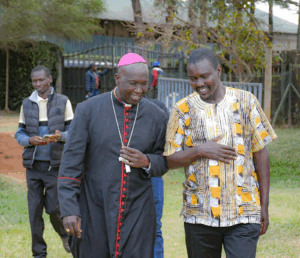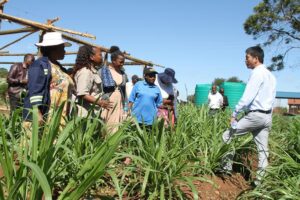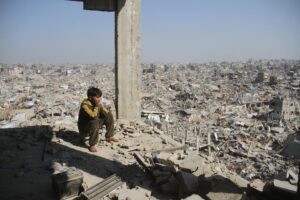Survivors Recall Horror as Boko Haram Strikes Darul Jamal
70-year-old mother of six Aisha Umar, the terror came closer to home. Militants from Boko Haram dragged two of her sons with them during the attack.

Families began returning back home only this year following government orders to close down camps for internally displaced individuals. Photo/ Courtesy
By Juliet Jerotich
In northern Nigeria, Darul Jamal residents experienced a nightmare as Boko Haram attacked in a deadly night raid on September 5, when survivors relied on raw instinct to survive.
He was among them 34-year-old Umar Bulama, who hid his face in the sand, still among his neighbors’ corpses. Blood and dust blinded him, and he prayed to be mistaken for dead by the fighters. Hours later, when daylight broke, he managed to escape, covering miles on foot to a military camp outside Banki. “I survived,” he whispered, “but left my neighbors behind forever.”
Darul Jamal, near the Cameroonian border, was abandoned years ago following an earlier Boko Haram attack nearly a decade ago. Families began returning back home only this year following government orders to close down camps for internally displaced individuals. Again, however, the attack reduced the town to ruins, with homes torched and scores dead.
Official accounts record a minimum of 63 deaths, though locals estimate closer to 90. Witnesses described destruction as homes were set ablaze and shots shattered the air before dawn broke. Ali Mustapha, a business owner, remembers grabbing his daughter’s hand and making a dash for cover in smoke and fire. His wife had not been so lucky. “I buried her myself,” he stated. “It was the last thing I could do for her.”.
For 70-year-old mother of six Aisha Umar, the terror came closer to home. Militants from Boko Haram dragged two of her sons with them during the attack. Now a visitor in the homes of relatives in Maiduguri, she testified of her grief and anger: “They told us it was safe to come back. Safe? Look at the graves.”
Even though Nigeria has seen less violence than the peak of violence between 2013–2015, both Boko Haram and its offshoot Islamic State West Africa Province (ISWAP) continue to dominate peripheral areas. ISWAP has over the past year alone captured at least 17 military bases, according to Good Governance Africa.
Governments tend not to publish the extent of such atrocities, but Borno State Governor Babagana Zulum visited Darul Jamal the next day, verifying 63 deaths. Locally based militias and aid workers counted more than 80 bodies.
The massacre has put the government’s resettlement program under scrutiny, with its critics arguing that the program is sending displaced families back to dangerous areas prematurely. As NGOs scale back their operations, communities remain more exposed.
This raid destroyed years of work,” said aid worker Habiba Yusuf. “Darul Jamal is a ghost town again.”.







